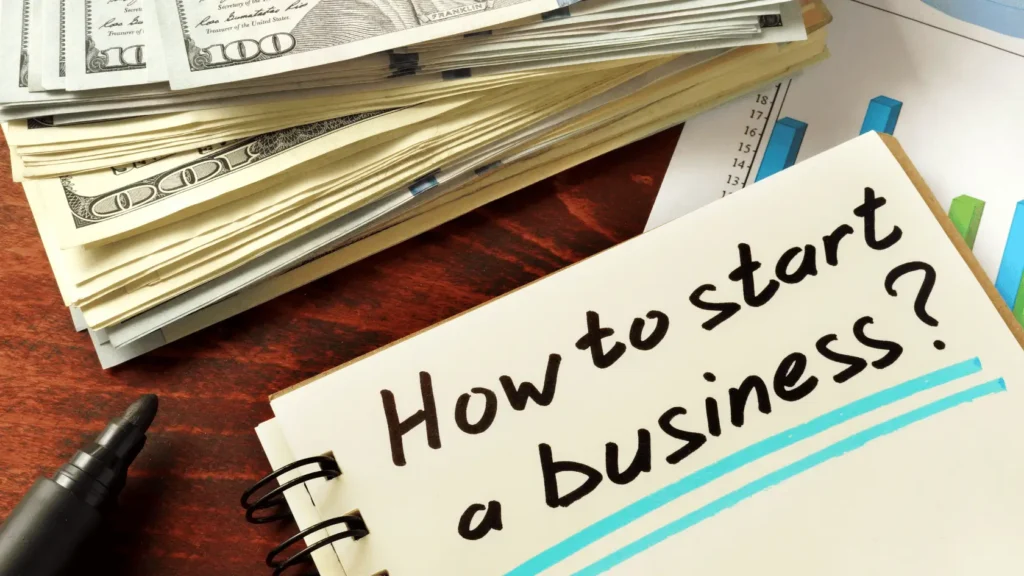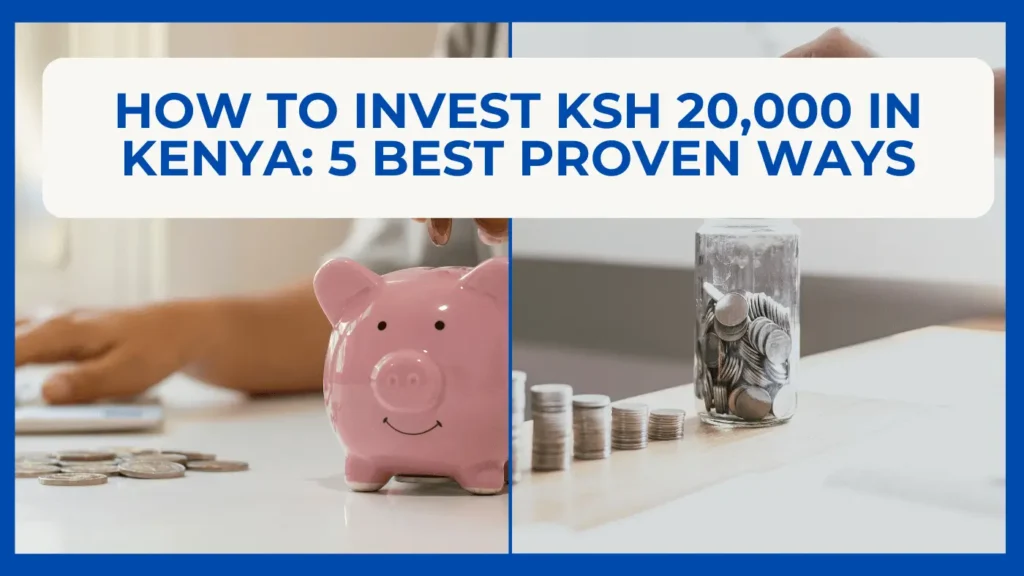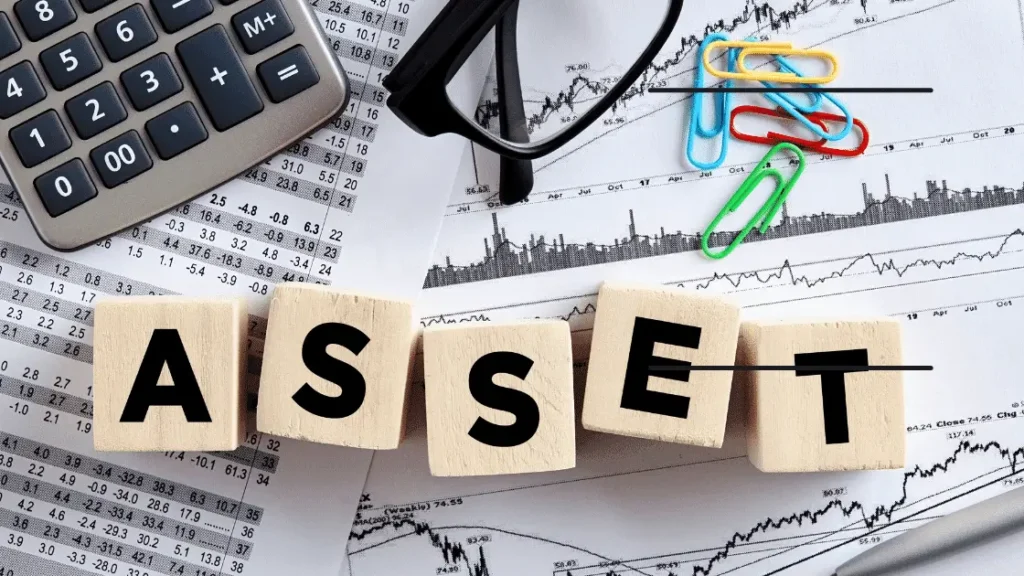Starting with Ksh 20,000 (about $160) might not appear to you as a fortune, but with it, you can plant the seed that could develop into something unique in Kenya. Imagination and perseverance on your part may transform this small amount into a potent starting-off capital that can lead to your bright future.
From owning a start-up to alternative lower-risk methods, this detailed guide will stir you up on how to invest Ksh 20000 in Kenya and become an entrepreneur.
The Rise of Entrepreneurship in Kenya
Kenya’s entrepreneurial spirit is thriving, with more individuals seeking financial independence and self-employment opportunities. In Kenya, small and medium enterprises (SMEs) contribute 3% to GDP and account for 98% of all businesses. They generate 30% of the country’s annual jobs and drive economic growth through production and consumption. Kenya has an estimated 1.5 million registered MSMEs and over 5 million informal MSMEs. The dominant sector is trade/retail, constituting 63% of SMEs. Plus, the industry is projected to contribute 50% to GDP growth in the next three years. This entrepreneurial drive, coupled with innovative thinking, has paved the way for numerous small business ventures to flourish.
How to Invest Ksh 20000 in Kenya
Start a Small Business

One of the most popular investment options for Ksh 20,000 in Kenya is starting a small business. This seed capital can be the foundation for various ventures, from selling second-hand clothes (mitumba) to opening a small grocery store or fast-food restaurant. Here are some promising small business ideas for 20K to consider:
Related: How to Start an Online Business in Kenya: A 7-Step Comprehensive Guide
1. Sell Second-Hand Clothing (Mitumba)
The demand for affordable second-hand clothing, commonly known as “mitumba,” is high in Kenya. With your Ksh 20,000, you can purchase a sizable inventory of quality used clothes or shoes from markets like Gikomba or Toi and resell them at a profit.
According to Grace Wambere, a successful Mitumba business owner in Nairobi, she started with just Ksh 2,000 and made Ksh 20,000 in a week. Today, she is a millionaire with several outlets and sells wholesale to other Kenyans who want to cash in on this type of business through her MITUMBA CHAP CHAP business. For instance, with 20k, you can buy a bale of shoes @ 8,500 KES with approximately 45 pairs of shoes and then resell each pair at a minimum of Ksh 600. If you are lucky enough to sell all 45 pairs in 2 weeks, you will make an excellent profit of Ksh 18,500 – nearly doubling your initial investment.
Now, if we deduct total costs, including transport fees, ‘kanjo’ fees, and stall fees, assuming you are selling in a marketplace, and other miscellaneous expenses, of Ksh 5,000, your net profit would still be an impressive Ksh 13,500 in just two weeks. This demonstrates the remarkable potential of the Mitumba business, where even a small initial investment can yield substantial returns through diligent effort and intelligent business practices.
Also Read: The 10 Best Passive Income Ideas for Teachers
2. Start a Small Fast Food Restaurant
Kenyans love their street food, and with Ksh 20,000, you can tap into this market by opening a small fast-food joint. Rent a strategic location, invest in essential cooking equipment, and offer a simple menu featuring popular items like chapati, burgers, fries, and grilled options.
The key to success in this venture is maintaining strict hygiene standards, offering quick service, and developing a unique selling point, such as signature sauces or dishes. Now let’s do some quick maths. If you sell an average of 50 meals per day at Ksh 100 each, your daily revenue would be Ksh 5,000. Assuming your monthly expenses, including rent, utilities, ingredients, and wages, total Ksh 40,000, you could potentially make a monthly profit of Ksh 70,000 (Ksh 5,000 x 30 days – Ksh 40,000 expenses).
A small fast-food restaurant can earn a very high rate of return provided it has a steady stream of customers and smooth operations, which enables it to generate money from the initial Ksh 20,000 investment. Moreover, by resorting to food delivery applications as well as developing a catering service, you would supplement the customer base and earn more profit.
The fast-food industry’s average profit margin ranges from 6% to 9%, according to industry reports. By maintaining tight cost controls and continuously innovating your menu offerings, you could potentially achieve profit margins well above the industry average, maximizing the returns on your Ksh 20,000 investment.
Must Read: The Complete Freelancing Toolkit for Writers: 10 Best Must-Haves
3. Cereals and Grains Trading
Maize, rice, and other grains are staple foods in Kenya, and they are in high demand from households and businesses alike. According to Selina Wamucii, an online marketplace for farmers, maize wholesales between Ksh 28.24 and Ksh 39 per kg and retails between KSh 43.06 and KSh 58.33 per kilogram, translating to KSh 3,870 to KSh 5,250 for a 90kg bag. With Ksh 20,000, you can purchase four to five bags and resell the grains at a profit. In other words, you could make a cool profit of Ksh 8,000 to Ksh 12,500 per month by reselling just ten 90kg bags of maize if you purchase them at the wholesale price and sell them at the retail price.
This profit margin can be even more increased by purchasing grains directly from the farmers at cheap prices or by extending your product range and adding more cereals like rice, beans, and wheat to your existing productions. This business (the cereals and grains trading business) can be booming by developing a reliable supply chain and being committed to both, the suppliers and the customers with the monetary input of Ksh 20,000 pouring steadily to your income and endless growth.
4. Venture into Farming
Agriculture is a cornerstone of Kenya’s economy, and with Ksh 20,000, you can start a small-scale farming business. Consider cultivating high-value crops like herbs, exotic vegetables, strawberries, or mushrooms, which fetch premium prices from hotels, restaurants, and health-conscious consumers.
Thus, if you have access to land, even a tiny plot, consider small-scale farming. According to Kenya Invest, KSh 20,000 can cover the costs of seeds, fertilizers, and essential equipment for growing vegetables or raising chickens for sale. This venture not only generates income but also contributes to food security. Let’s do quick maths.
Assuming you invest in growing high-value crops like herbs or exotic vegetables and fruits like dragon fruits, passion fruits, and garlic, you can generate an average revenue of Ksh 500 per square meter of cultivated land per month. With an initial investment of Ksh 20,000, you could cultivate an area of approximately 100 square meters. If you achieve an average revenue of Ksh 500 per square meter, your monthly income from this small-scale farming venture could be around Ksh 50,000 (100 sq meters x Ksh 500).
The balance of the revenue resulting from the deduction of the expenses of seeds, fertilizers, labor, and other operational costs, ranging between 30% and 50%, will bring you a monthly net profit of Ksh 25,000 to Ksh 35,000 from an investment of Ksh 20,000. The yield varies across different types of seeds, fluctuations in market demand, and also your farm management methods.
It is worth mentioning that small-scale farming demands commitment, hard labor, and the ability to learn and work through any changes. Nevertheless, it becomes a potential source of providing a continuous stream of income while adding to the success of agriculture in Kenya.
Also Read: 30 best work-from-home office essentials
5. Open a Phone Repair Shop
With over 66.4 million SIM subscriptions in Kenya (according to the Communications Authority of Kenya as of June 30, 2023 report), the demand for mobile phone repair services is constant. Rent a small space, purchase essential tools and components, and either learn the repair skills yourself or hire a technician.
Offering competitive pricing and quality artistry in a high-traffic area can quickly establish your phone repair shop as a go-to destination for mobile device owners. In fact, I can attest that situations this business is near a university. I have previously been employed in one such repair shop, and the average daily revenue was around Ksh 5,000 to Ksh 8,000, with an average repair cost of Ksh 500 to Ksh 3,000 per device.
With your initial investment of Ksh 20,000, you could secure a small rental space for approximately Ksh 5,000 per month, purchase essential tools and components for around Ksh 10,000, and still have funds remaining for marketing and other operational expenses. Assuming you can maintain an average daily revenue of Ksh 2,000 and keep your monthly expenses below Ksh 15,000, you could generate a net profit of Ksh 35,000 to Ksh 50,000 per month.
The single-line success of the phone repair shop depends on variables like location, pricing, customer comfort, and customer feedback. To attract clients, retention of existing customers, and also establish your business as a reliable name in the smartphone repair market, you need to endeavour to offer reliable repairs, competitive rates, and outstanding customer service to your clients.
Also Read: 10 Bad Money Habits and How To Break Them
Invest in Low-Risk Options

While starting a business can be rewarding, it also comes with inherent risks. If you prefer a more conservative approach, consider these lower-risk investment options for your Ksh 20,000:
Money Market Funds
Money market funds invest in short-term, high-credit-quality debt securities, such as Treasury Bills. These mutual funds typically offer attractive interest rates ranging from 8% to 10% and pay out dividends either monthly or at the end of the fiscal year. Now, if you were to invest in a Money Market Fund with an average annual return of 9%, you could earn approximately Ksh 1,800 in interest over one year.
Related: How to Invest in Money Market Funds in Kenya: 6 Easy Steps
Fixed Deposits
Consider locking up a portion of your Ksh 20,000 in a fixed deposit account with a reputable bank or financial institution. While the returns may not be as high as other investment vehicles, fixed deposits provide a guaranteed interest rate and a secure way to grow your capital over time. For instance, if you were to save Ksh 20,000 for one year with a bank that has a high-yield savings account with an interest rate of 11% p.a., you could earn around Ksh 2,200 in interest in one year.
Read also: 5 Best Banks in Kenya for Savings
Dividend Stocks
If you’re willing to take on slightly more risk and have a longer investment horizon, investing in dividend-paying stocks can be a viable option. You should research companies with a solid track record of paying consistent dividends and reinvesting those dividends to compound your returns over time. Companies like Safaricom, KCB Group, and Equity Group are known for their consistent dividend payouts. If you were to invest Ksh 20,000 in a stock with an average dividend yield of 11%, you could potentially earn Ksh 2,200 in dividends annually.
Savings and Cooperative Societies (Saccos)
Saccos are member-owned financial cooperatives that offer a range of services, including savings accounts and investment opportunities. By joining a reputable Sacco, you can potentially earn higher interest rates on your Ksh 20,000 while enjoying the benefits of a cooperative structure.
If you were to save Ksh 20,000 in Sacco with a dividend rate of 16%, you could earn a substantial Ksh 3,200 in interest over one year, significantly higher than most traditional savings accounts. In addition, most SACCOs will offer you a loan amount that is 2 to 3 times your savings, allowing you to leverage your initial investment for further wealth-building opportunities, such as starting a business or making other investments.
Related: How to Invest in Saccos in Kenya: Definitive Guide
Invest in Your Skills and Education

Another valuable investment you can make with Ksh 20,000 is in your personal and professional development. Consider enrolling in vocational training courses, attending workshops, or pursuing online certifications to enhance your skills and knowledge. This investment in human capital can lead to increased earning potential and career advancement opportunities.
Leverage the Power of Compound Interest
Regardless of the investment avenue you choose, it’s essential to understand the power of compound interest. By consistently reinvesting your returns, you can accelerate the growth of your initial investment over time.
We offer a free Savings and Investment Calculator tool to help you visualize the potential growth of your investments. This powerful tool allows you to input your initial balance, monthly contributions, interest rate, and duration to calculate your final balance, total contribution, and total interest earned.
For example, let’s say you invest your Ksh 20,000 (approximately $200) at an annual interest rate of 10% for 11 years, contributing an additional $200 monthly. Using our Savings and Investment Calculator, you’ll see that your final balance would be $53,753.11, with a total contribution of $28,400 and a staggering $25,353.11 in interest earned.
This calculator is a valuable resource for investors of all levels, allowing you to experiment with different scenarios and visualize the impact of compound interest on your investments. Leverage this free tool to develop a comprehensive savings and investment plan that aligns with your financial goals.
Final Thoughts
Investing Ksh 20,000 in Kenya may seem like a small step, but it can be the beginning of a transformative financial journey. Whether you choose to start a small business or explore lower-risk investment options, the key is to take action and make your money work for you.
Remember, successful investing often involves taking calculated risks, conducting thorough research, and remaining patient as your investment grows over time. With the right mindset, dedication, and the help of free tools like the Savings and Investment Calculator, you can turn your Ksh 20,000 into a significant financial asset that can potentially change your life.


